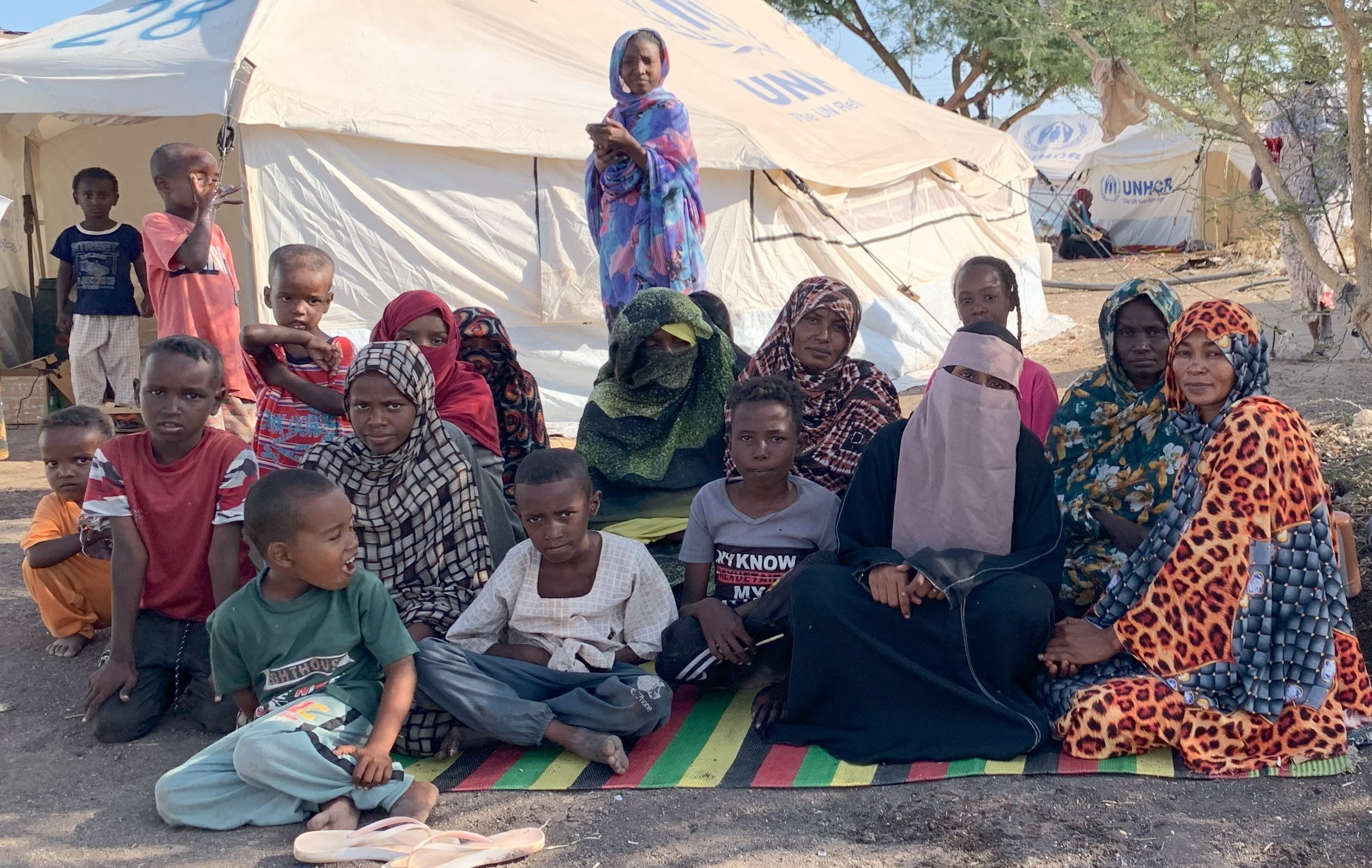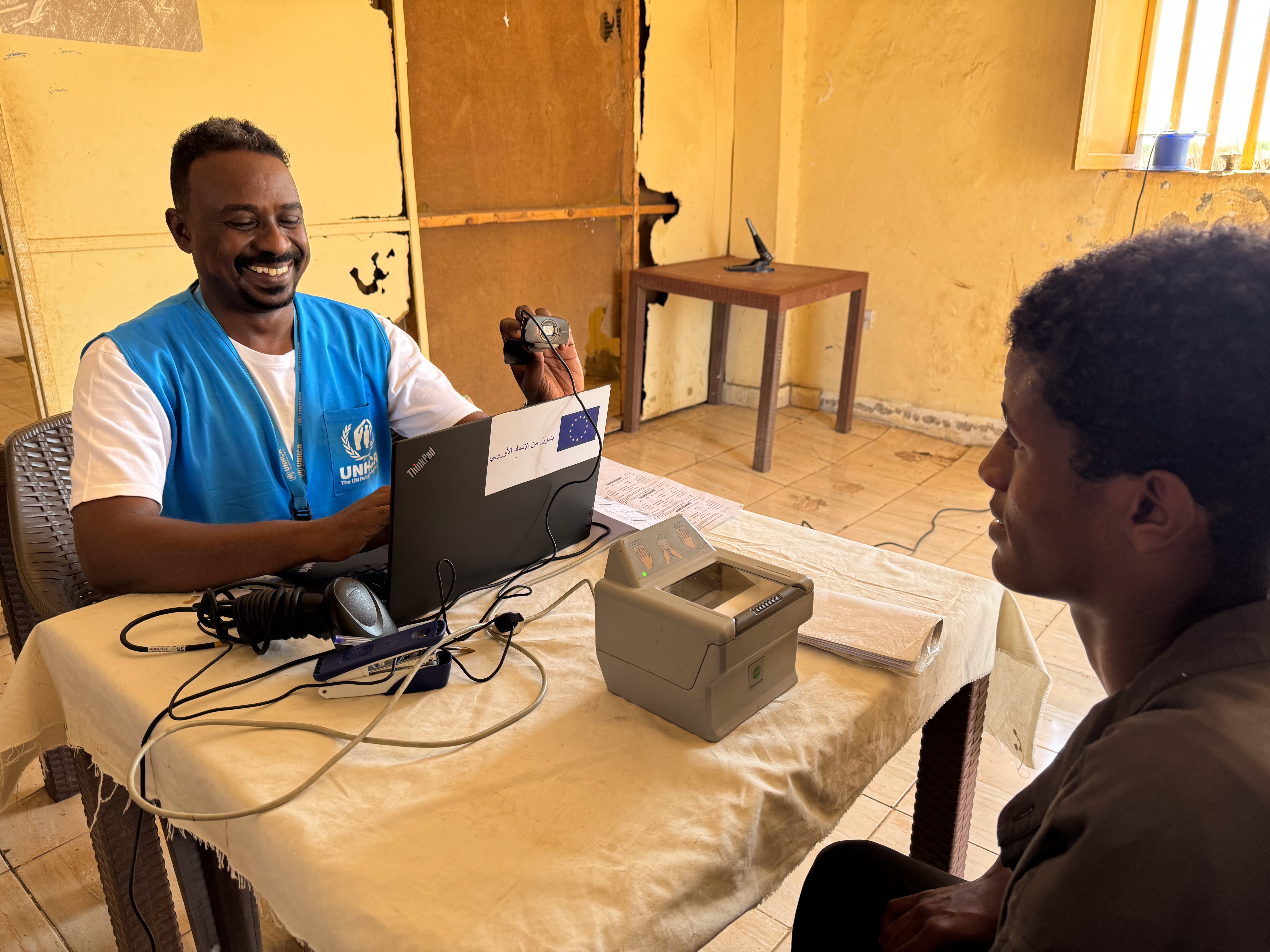Governments commit to strengthening regional responses for refugees and migrants along routes in Southern Africa
Governments commit to strengthening regional responses for refugees and migrants along routes in Southern Africa

Pretoria, South Africa - Government officials from across Southern Africa gathered to discuss how to undertake collective action to address the complex challenges faced by refugees and migrants in mixed movements through a route-based approach. With thousands of people moving annually through the region’s migration routes, the two-day high-level meeting aimed to strengthen a coordinated response that safeguards displaced people while supporting governments in managing migration effectively.
The meeting was co-convened by the Southern African Development Community (SADC) and UNHCR, the UN Refugee Agency. Discussions centered around the need to enhance coordination among Member States to enhance protection, harmonize migration and asylum policies and establish systems for regular data sharing. This will strengthen regional cooperation, improve responses to emerging trends, and ensure more coordinated measures to address the challenges of mixed movements, saving lives along the routes.
“The way forward requires us to adopt a mind-set of mutual responsibility, where each country, whether origin, transit, or destination, contributes to the creation of a system that prioritizes safe, orderly, and regular migration. The route-based approach we are here to discuss is not just a policy option; it is an essential step toward ensuring stability and; shared responsibility and prosperity across the Southern African region,” said Njabulo Nzuza, South Africa’s Deputy Minister of Home Affairs in his remarks officially welcoming the participants to the meeting.
Mixed movements in Southern Africa are driven by diverse factors, including conflict, persecution, and economic necessity, with South Africa and Mayotte often the destination of choice. These movements occur along two primary routes: the Southern Africa route, spanning East Africa, the Horn of Africa, and the Great Lakes region, and the Western Indian Ocean route. Both present significant challenges, including human trafficking, exploitation, inadequate access to basic services, and the tragic loss of lives, all exacerbated by inadequate regional coordination.
“The route-based approach we are promoting would provide a comprehensive framework to tackle the multifaceted challenges of mixed movements, said Chansa Kapaya, UNHCR’s Regional Director for Southern Africa. “It emphasizes coordination across countries in the region while promoting protection and safe, dignified, and rights-based mobility”, she added.
Participants, including representatives from SADC Member States, discussed key issues such as work visas, family reunification, strengthen asylum systems to address backlogs in asylum requests and bolster investments in education, healthcare, and livelihoods for forcibly displaced populations. A central theme was the need to address vulnerabilities, especially those affecting women and children.
Representatives from SADC Member States agreed to continue efforts aimed at strengthening national asylum systems and improving regional coordination mechanisms. They emphasized the critical need for enhanced partnerships to support data collection, border management, and the creation of safe and legal migration pathways.
“There's no one-size-fits-all approach to managing mixed movements, and a multi sectoral approach by all actors will engender effective solutions and concrete actions to address their challenges,” said Kealeboga Moruti, Senior Officer Public Security, Directorate of the Organ on Politics, Defence and Security Affairs of SADC.
The importance of swift, safe, and dignified return for those without protection needs or legal grounds to stay was highlighted. Equally emphasized was the need to help returnees reintegrate into their home countries' economies and communities, enabling them to rebuild their lives and contribute to national development efforts.
Acknowledging that there may be no quick fixes to the challenges of mixed movements, the discussions emphasized the importance of a people-centred approach, political commitment, and shared responsibility.
Grounded in the principles of the Global Compact on Refugees, the route-based approach provides a tailored path to address the needs of refugees and migrants while strengthening governments’ capacity to respond more effectively and predictably to the challenges of mixed movements.
END
For more information, please contact:
Edward Ogolla, Regional Communications Officer, [email protected]








